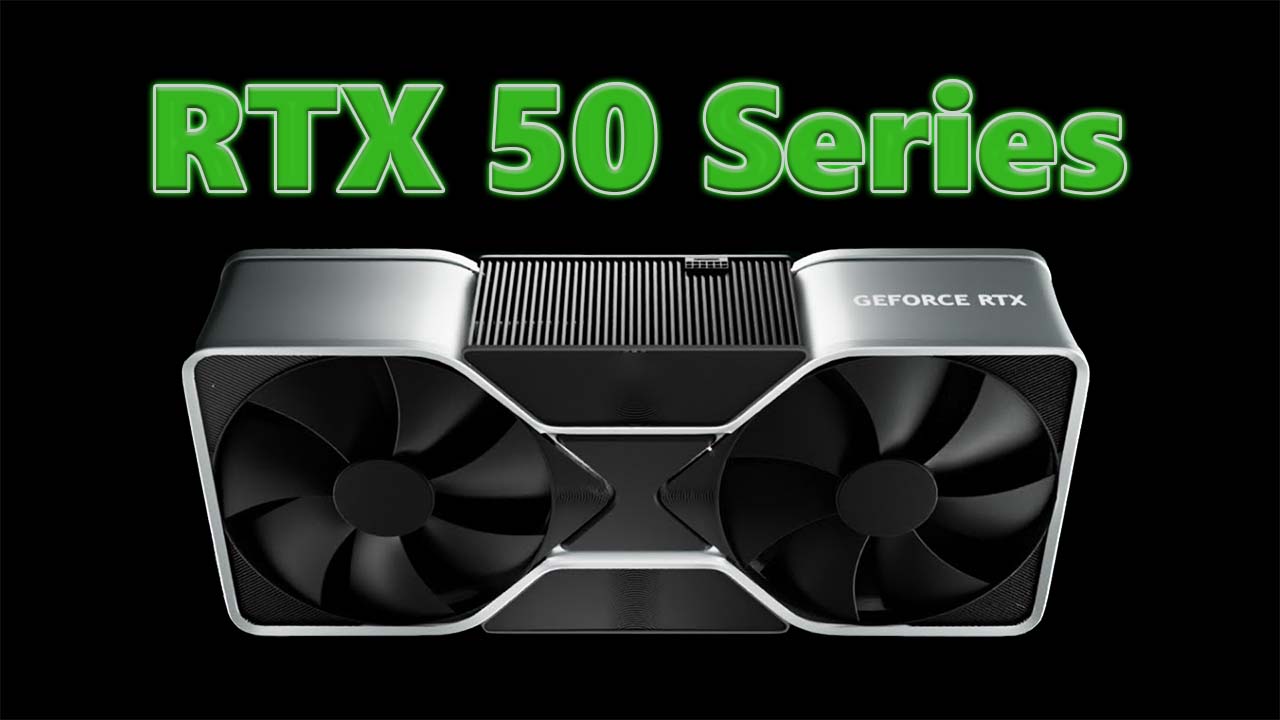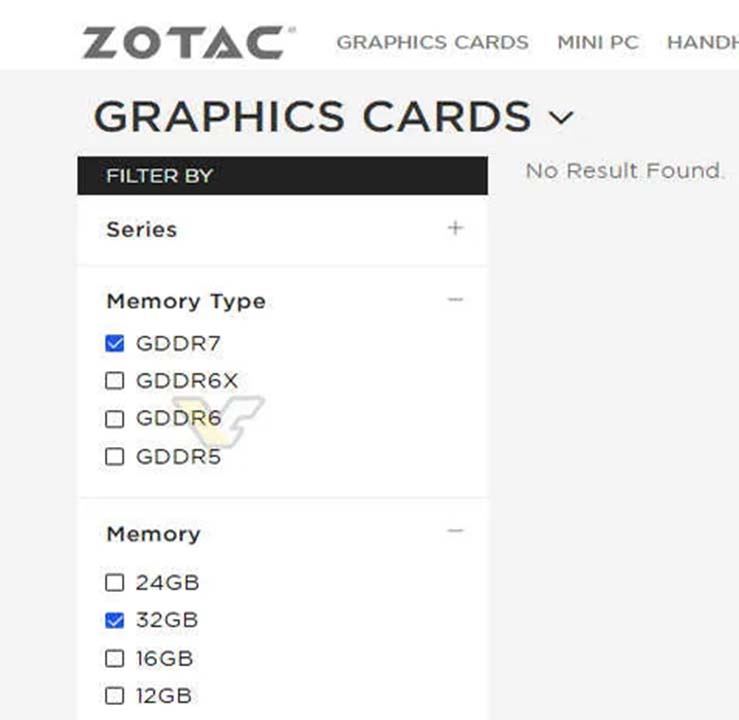NVIDIA GeForce RTX 50 Series: Next-Gen GPU Details Revealed
17 Dec 2024
The next generation of NVIDIA GPUs is coming into focus, with rumors offering a clearer picture of what to expect from the RTX 50 series. Recent leaks show details for both, high-end flagship models and mid-range options.

High-End Models Confirmed
ZOTAC accidentally confirmed key details of the RTX 50 series by briefly listing the new GPUs on their website before quickly removing the information. The confirmed models include:

Credit: Videocardz
- GeForce RTX 5090
- GeForce RTX 5090D (China-specific variant)
- GeForce RTX 5080
- GeForce RTX 5070 Ti
- GeForce RTX 5070
The standout features of the RTX 50 series are the introduction of GDDR7 memory technology and the 32GB memory capacity for the flagship RTX 5090. These upgrades represent a major step from the previous RTX 40 series. The RTX 5090, for instance, is rumored to include 21,760 CUDA cores and a massive 512-bit memory interface, with a power consumption of under 600W. The RTX 5080 and RTX 5070 Ti also bring significant improvements, offering 16GB of GDDR7 memory with higher bandwidth and efficiency, that make them strong contenders for high-performance gaming and professional applications.

Credit: Videocardz
Budget Options: RTX 5060 Series
In addition to the flagship models, new details have emerged about NVIDIA's upcoming RTX 5060 series. According to reports, two models will be introduced:
- RTX 5060 Ti: 16GB GDDR7 memory on a 128-bit memory bus, achieving 448 GB/s bandwidth—65% higher than the RTX 4060 Ti.
- RTX 5060: 8GB GDDR7 memory with the same 128-bit bus.
While these upgrades improve memory performance, the RTX 5060’s 8GB capacity may limit its appeal for 1440p gaming. Market analysts suggest NVIDIA might consider increasing the memory to 10GB.
| Model | GPU | CUDA Cores | Memory | Memory Bus | Bandwidth | TGP/TDP | Release Date |
|---|---|---|---|---|---|---|---|
| GeForce RTX 5090 | GB202-300 | 21,760 | 32GB GDDR7 | 512-bit | - | <600W | Q1 2025 |
| GeForce RTX 5090D | GB202-xxx | 21,760 | 32GB GDDR7 | 512-bit | - | <600W | - |
| GeForce RTX 5080 | GB203-400 | 10,752 | 16GB GDDR7 | 256-bit | - | ~400W | Q1 2025 |
| GeForce RTX 5070 Ti | GB203-300 | 8,960 | 16GB GDDR7 | 256-bit | - | ~285W | Q1 2025 |
| GeForce RTX 5070 | GB205-300 | 6,400 | 12GB GDDR7 | 192-bit | - | ~250W | Q1 2025 |
| RTX 5060 Ti | - | - | 16GB GDDR7 | 128-bit | 448 GB/s | TBC | Late Q1 2025 |
| RTX 5060 | - | - | 8GB GDDR7 | 128-bit | 448 GB/s | TBC | Late Q1 2025 |
Performance Upgrades Across the Lineup
The RTX 50 series appears to focus on delivering higher performance through:
- Introduction of GDDR7 memory for faster speeds and greater bandwidth.
- Significantly expanded CUDA core counts, especially in high-end models like the RTX 5090 and 5080.
- Support for PCIe 5.0 standards, improving data transfer speeds.
Compared to the RTX 40 series, the memory and bandwidth improvements are substantial, particularly for flagship and mid-range models.
Strategic Launches and Availability
The RTX 5090, 5080, and 5070 series are expected to be announced in January 2025, with availability likely soon after. Meanwhile, the RTX 5060 Ti and RTX 5060 are rumored to launch in early 2025, possibly between February and June. NVIDIA’s staggered release strategy aligns with its typical practice of focusing on high-performance GPUs first, followed by budget-friendly models.